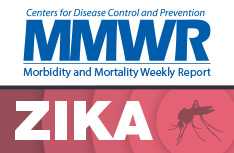Testing Recommendations & Health Risks During the Periconceptional Period
Testing Recommendations for Non-Pregnant Women and Men
Symptomatic patients: Zika virus testing is indicated for non-pregnant women and men who have possible exposure to Zika and who experience symptoms of Zika virus disease. Possible exposure is defined as living in or having recently traveled to an area with risk of Zika, or sex (vaginal, anal, or oral, or the sharing of sex toys) without a condom with someone who lives in or has recently traveled to an area with risk of Zika. The most common symptoms of Zika virus disease are fever, rash, headache, joint pain, conjunctivitis (red eyes), and muscle pain.
Zika virus testing is performed at CDC, at several state and local health departments, and at some commercial laboratories. Several lab tests are available to help determine if a person is infected with Zika virus disease. Healthcare providers should contact their state and local health department to facilitate testing. See the Testing for Zika Virus webpage for information on how to obtain Zika testing.
Asymptomatic patients: Routine testing is not currently recommended for non-pregnant women and men who have possible exposure to Zika virus but no clinical illness.
No test is 100% accurate. A test result can sometimes be negative in the setting of true infection, and the results could be falsely reassuring.
For example:
- If the IgM test is performed too early after infection when the antibody levels are not yet high enough, the results could be negative even though infection is present.
- If the IgM test is performed after the IgM has waned, the results could be negative. Similarly, if the serum or blood PCR is performed after the virus is no longer in the blood, Zika could still be present in other bodily fluids (e.g., semen). In those situations, the blood test would be negative but the person could still be infected and able to infect others.
- It is also possible for IgM test results to be positive in the absence of current infection because of, for example, extended IgM persistence after a previous infection has resolved or due to cross-reactivity of IgM test with another virus.
Preconception Testing Recommendations for Women
CDC previously issued a recommendation that healthcare providers consider Zika virus IgM testing as part of preconception counseling to establish baseline IgM results before pregnancy for asymptomatic non-pregnant women with ongoing possible exposure who are planning to conceive (HAN, May 5, 2017). Ongoing exposure means they live in or frequently travel to (e.g., daily or weekly) an area with risk of Zika. However, testing for such a purpose is no longer warranted given that Zika virus IgM is no longer routinely recommended for asymptomatic pregnant women.
Risks of Infection Before Conception and Fertility Treatment
Periconceptional Infection
Because Zika virus infection is a cause of microcephaly and other severe fetal brain defects, pregnancy planning in the context of the Zika outbreak is important. There is limited information available about the risk for adverse pregnancy outcomes around periconceptional Zika virus infection (defined as infection during 8 weeks before conception or 6 weeks before last menstrual period). To date, there have been no published reports of adverse pregnancy outcomes after periconceptional Zika virus infection. Infections with other viruses (e.g., cytomegalovirus, rubella, parvovirus) around the time of conception have been associated with congenital infection and adverse pregnancy outcomes, although the exact timing of infection relative to conception was sometimes uncertain.
Pregnancy after Infection has Cleared
There is no evidence that a fetus conceived after the virus has cleared the woman’s body would be at risk for fetal Zika infection. There is no evidence that prior Zika virus infection poses a risk of birth defects in future pregnancies.
Fertility Treatment
No instances of Zika virus transmission during fertility treatment have been documented, but transmission through donated gametes or embryos is theoretically possible. Zika virus has been detected in semen, and sexual transmission has occurred. The US Food and Drug Administration has issued guidance [PDF – 10 pages] providing recommendations to reduce the potential transmission risk of Zika virus through donated tissues, including donated sperm, oocytes, and embryos from anonymous donors. Fertility treatment for sexually intimate couples using their own gametes and embryos should follow the testing and timing recommendations for couples attempting conception, although recommendations might need to be adjusted depending on individual circumstances.
More Information
- HAN Advisory: Prolonged IgM Antibody Response in People Infected with Zika Virus: Implications for Interpreting Serologic Testing Results for Pregnant Women (May 5, 2017)
- Donor Screening Recommendations to Reduce the Risk of Transmission of Zika Virus by Human Cells, Tissues, and Cellular and Tissue-Based Products [PDF – 75 KB] (FDA)
- HAN Advisory: Recognizing, Managing, and Reporting Zika Virus Infections in Travelers Returning from Central America, South America, the Caribbean, and Mexico (HAN, Jan. 15, 2016)
- Page last reviewed: August 18, 2017
- Page last updated: August 18, 2017
- Content source:





 ShareCompartir
ShareCompartir